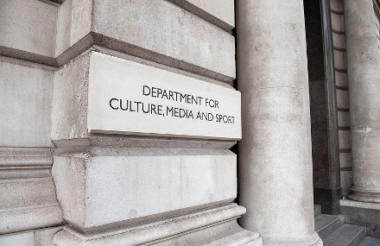David Ainsworth looks at whether the new civil society strategy is likely to have any lasting impact.
Last week Tracey Crouch, minister for civil society as well as many other things, announced plans to create a new strategy for the sector.
It contained a lot of good things. The phrases “joined up” and “coordinated” jump out at you, for example, and it’s certainly true that we could do with a joined up government approach to charities.
It’s a little hard to know what to make of a new announcement like this, when you encounter it for the first time. Government pronouncements tend to be long on rhetoric and short on detail, so it’s hard to know whether this is really a good thing or not.
One thing is that it doesn’t come with any new money attached, but – slightly counterintuitively – I think that’s probably a positive thing. We’ve already got a really sizeable amount of investment coming down the line, in the form of at least a billion – probably far more – from dormant assets. And what we don’t want is for government to continue to throw small-scale, one-time pots of cash at the sector. They’re better than no pots of cash, but they aren’t ever going to really solve the sector’s structural problems.
What we do really want is a change of approach right across government, and this is at least an attempt to deliver it.
That’s not to say I’m entirely optimistic. History provides mixed evidence for the success of these things.
And I’m not just talking about the Big Society, either. A more apropos comparison probably comes from more than a decade ago, when the Labour administration launched the Compact – an agreement between government and the voluntary sector – which essentially ensured three-year grant funding and the sanctity of the sector’s right to campaign.
It was launched with much fanfare – and a lot of cash. But within a couple of years that was showing cracks, and now it’s never mentioned. Its goals – grant funding and campaigning – are both badly under threat.
Of course, things have a life cycle. The Compact did work for a while, and perhaps we do need to go through a similar process again. But it’s fair to say that this new strategy seems to have provoked a certain amount of “Here we go again” commentary among the policy officers who work most closely with the OCS.
One positive note comes from the fact that Tracey Crouch is fresh from delivering the government’s new sports strategy, which has received relatively good reviews. Although that does seem to be largely because the old one was spectacularly bad.
The question, in the end, is not really whether a good strategy can be developed – we all know what needs the happen. The question is whether it can be delivered. So many different public sector bodies interact with the sector, in such diverse ways, and the biggest barrier to the success of any strategy is the very considerable inertia in the behaviour of civil servants.
So the question is whether, once this strategy is created, it can get buy-in across government.
It is comforting that DCLG appears to have bought into it, since this is the department that actually has the most power to influence how charities are treated – and would probably be better home for the OCS in the first place.
The question, in the end, is whether the OCS can push this through.
Related articles












